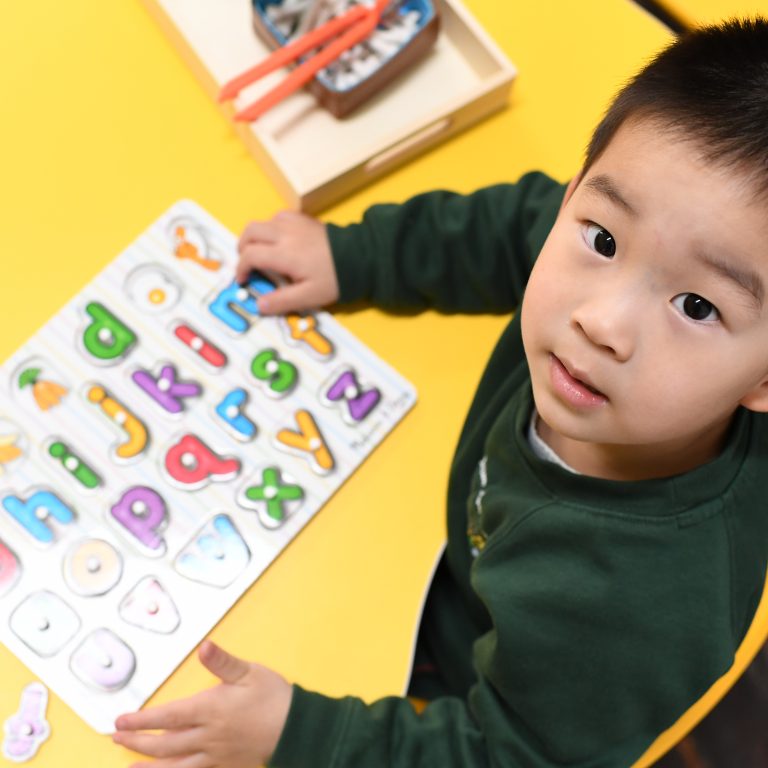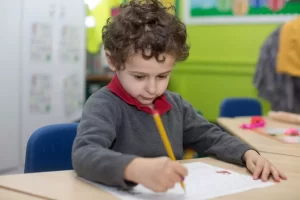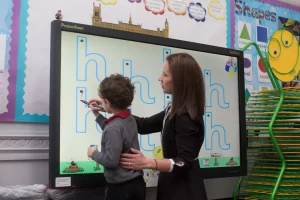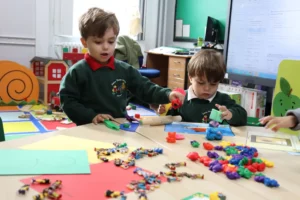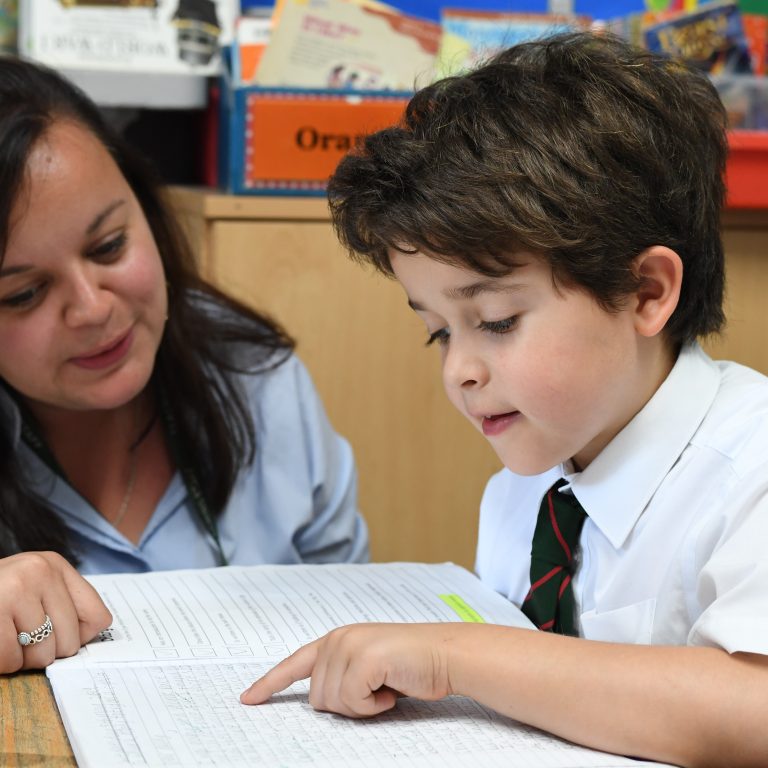The early years foundation stage curriculum is made up of seven areas:
- personal, social and emotional development
- mathematics
- physical development
- communication and language
- literacy
- expressive arts and design
- understanding the world
Our timetable has a balance of all seven areas and some extras too! We have an introduction to languages, cooking, and yoga to name but a few.
Every single child is challenged at their own level. Carefully structured focus groups allow the teachers to differentiate. Literacy activities include the listening ears games – where children wear big ears and walk through the school tuning into different sounds, playing silly soup and rhyming all the words in the bowl, and reading their first book, Fat Tom.
Children start by learning all the colours and basic shapes. They then move on to sounds and numbers. We use action songs and stories to introduce them.
The children are constantly informally assessed and observed to feed into our planning. Activities initiated both by adults and by children contribute to our half-termly topics.
- Every single child is challenged at his or her own level, individual and small group work allows our teachers to differentiate all the time.
- The children are informally assessed and observed to aid our planning.
- If your child wants to learn… the sky is the limit!
Click on the dropdown options to find out more about some of our activities.

